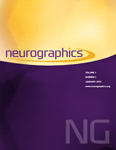
Cerebral Amyloid Angiopathy‐related Inflammation: American Society of Neuroradiology 2020 Case of the Year
Cerebral amyloid angiopathy‐related inflammation (CAARI) presents as a syndrome of acute/subacute encephalopathy. Currently, the underlying etiopathogenesis of this entity is not well established, though the amyloid deposits and resulting perivascular inflammation and cellular
infiltrate are said to be the underlying cause. A definitive diagnosis of CAARI may require brain biopsy, which is not often clinically feasible in every case. Furthermore, CAARI does not affect the parenchyma uniformly, and biopsy could be falsely negative at times. When present, the combination
of helpful imaging findings and a high index of suspicion may help avoid the morbidity associated with invasive brain biopsy and establish a timely diagnosis. This article describes one of the commonly encountered imaging and clinical presentations of CAARI.
Keywords: ABRA = amyloid-beta related angiitis; CAA = cerebral amyloid angiopathy; CAARI = cerebral amyloid angiopathy‐related inflammation; PRES = posterior reversible encephalopathy syndrome; rCBF = relative CBF; rCBV = relative CBV
Document Type: Research Article
Publication date: 01 April 2022
- Access Key
- Free content
- Partial Free content
- New content
- Open access content
- Partial Open access content
- Subscribed content
- Partial Subscribed content
- Free trial content